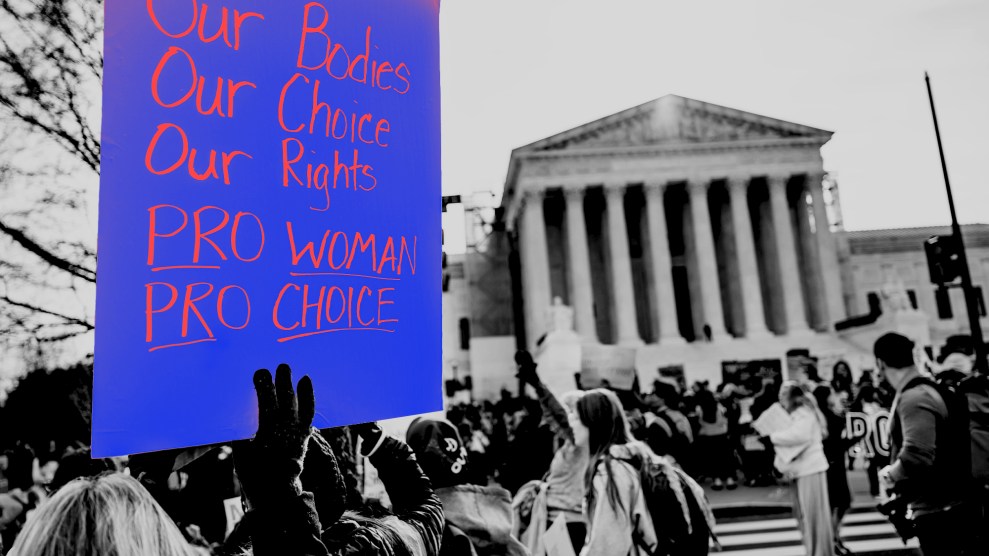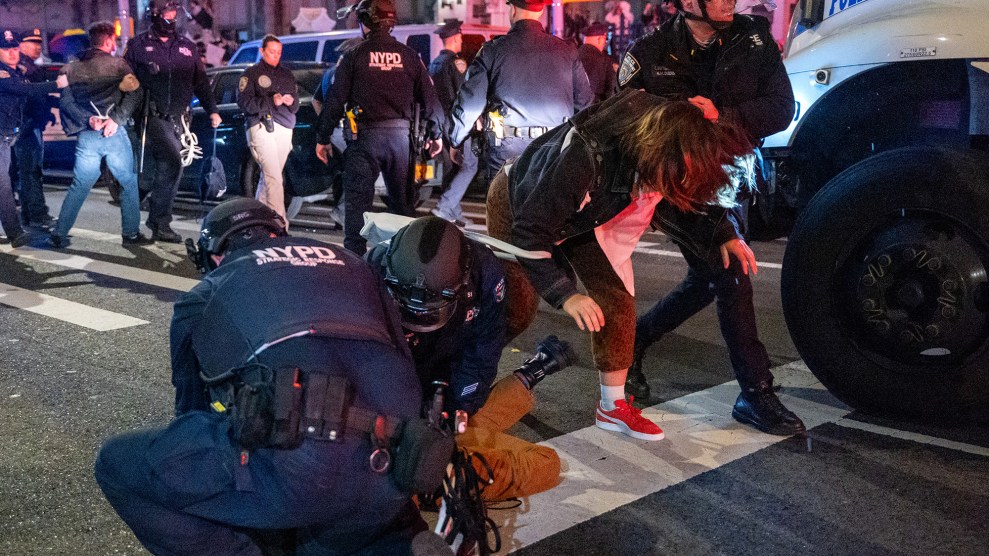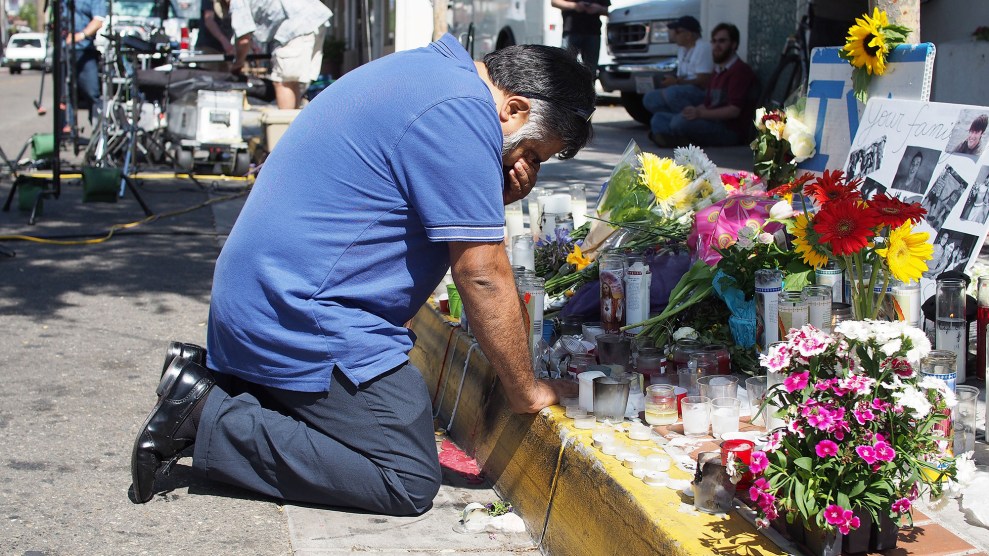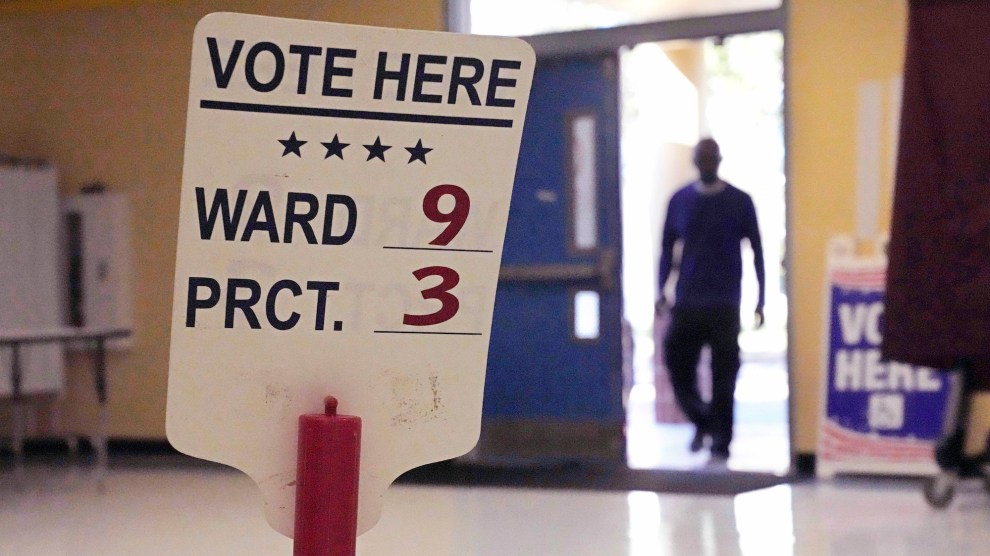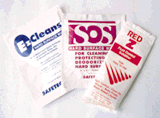
In July 1996, the nationally respected health organization launched the Red Cross Preferred program, which enables 3,000 Red Cross-affiliated U.S. hospitals to buy discounted products and services through a special catalog. One of the 19 companies appearing in the first catalog was Safetec of America Inc., a Buffalo, N.Y., manufacturer of infection control products. And among the products offered by Safetec in its full-page ad was EZ-Cleans wipes, an unregistered product.
After the Environmental Protection Agency twice ordered Safetec to stop marketing EZ-Cleans wipes, the company dropped the product from its lineup in the second (spring 1997) Red Cross Preferred catalog — only to replace it with an unregistered disinfectant, the S.O.S. Hard Surface Wipe, which was listed under the category “EPA reg. Disinfectants & Cleaners.” And the S.O.S. wipe isn’t the only unregistered Safetec product promoted in the catalog: There are also two unregistered disinfectant absorbent powders, used for cleaning up blood in hazardous situations, as well as emergency first-aid kits that include unregistered disinfectant wipes.
Informed that the catalog was advertising unregistered products, Red Cross Preferred spokesman Michael Fulwider said, “These products are not Red Cross products. This is a catalog of companies that are willing to offer discounts on their products to hospitals that the Red Cross services.” He also pointed out the fine print at the bottom of the catalog’s contents page: “Red Cross does not guarantee, warrant, or endorse the goods or services of any of the companies participating in Red Cross Preferred.”
But the shiny red-and-white catalog certainly appears to be endorsing these products, with the Red Cross Preferred logo prominently displayed on each page. (Asked what the catalog means by “preferred,” Fulwider responded, “I have no idea.”)
Fulwider says companies must pay a membership fee to be in the catalog. “But that’s just to defray some of the costs,” he says. “This is not a moneymaking venture for the Red Cross.” He would not disclose the amount of the fee.
Federal law requires any product that claims to kill bacteria, viruses, or fungi to be registered. “The concern with unregistered disinfectants is that part of the registration process is making sure they do what they say they do,” says Mary Mears of the New York regional EPA office that issued the order against Safetec. “If they’re not killing all the little critters they say, they’re contributing to the spread of hospital infections.”
Peter Weinstein, Safetec’s vice president for sales and marketing, claims he didn’t think EZ-Cleans — which, according to its advertising, killed 35 pathogens — needed to be registered because it didn’t identify which pathogens it killed. “At the time the product was born,” Weinstein says, “we were under the impression that everything was perfect on it.” He blames the EPA for providing the company with unclear information.
As for the S.O.S. wipe, Weinstein says its listing in the Red Cross catalog as an EPA-registered disinfectant was a “type error.” He argues that the product is not a disinfectant, but a “cleaner,” which does not have to be registered with the EPA.
According to the EPA, such word games are one of the gimmicks companies often use when their products have disinfectant ingredients but lack EPA approval. “Cleaning and deodorizing” is a common catchall description used for unregistered disinfectants, explains James West, an EPA compliance officer based in Atlanta. “But if it’s being marketed to an infection control organization, that’s not the intent.”
The Red Cross isn’t alone in promoting unregistered disinfectants. Other medical catalogs also contain unregistered products. And why not? The penalty for distributing an unregistered pesticide (a category that includes disinfectants) is a maximum fine of $5,500 per violation — the lowest of any environmental fine. And, according to West, the more common penalty is between $2,000 and $4,000.
Meanwhile, there is nothing to stop unregistered disinfectants from spreading into the nation’s top hospitals. “If we get a salesperson that gets to an individual [hospital department], that’s how it would get in,” says Myron Maker, an infection control specialist at the Mayo Clinic in Minneapolis. “We don’t know everything used here. It’s a pretty big place. We’ve got stuff coming in the back door.”
